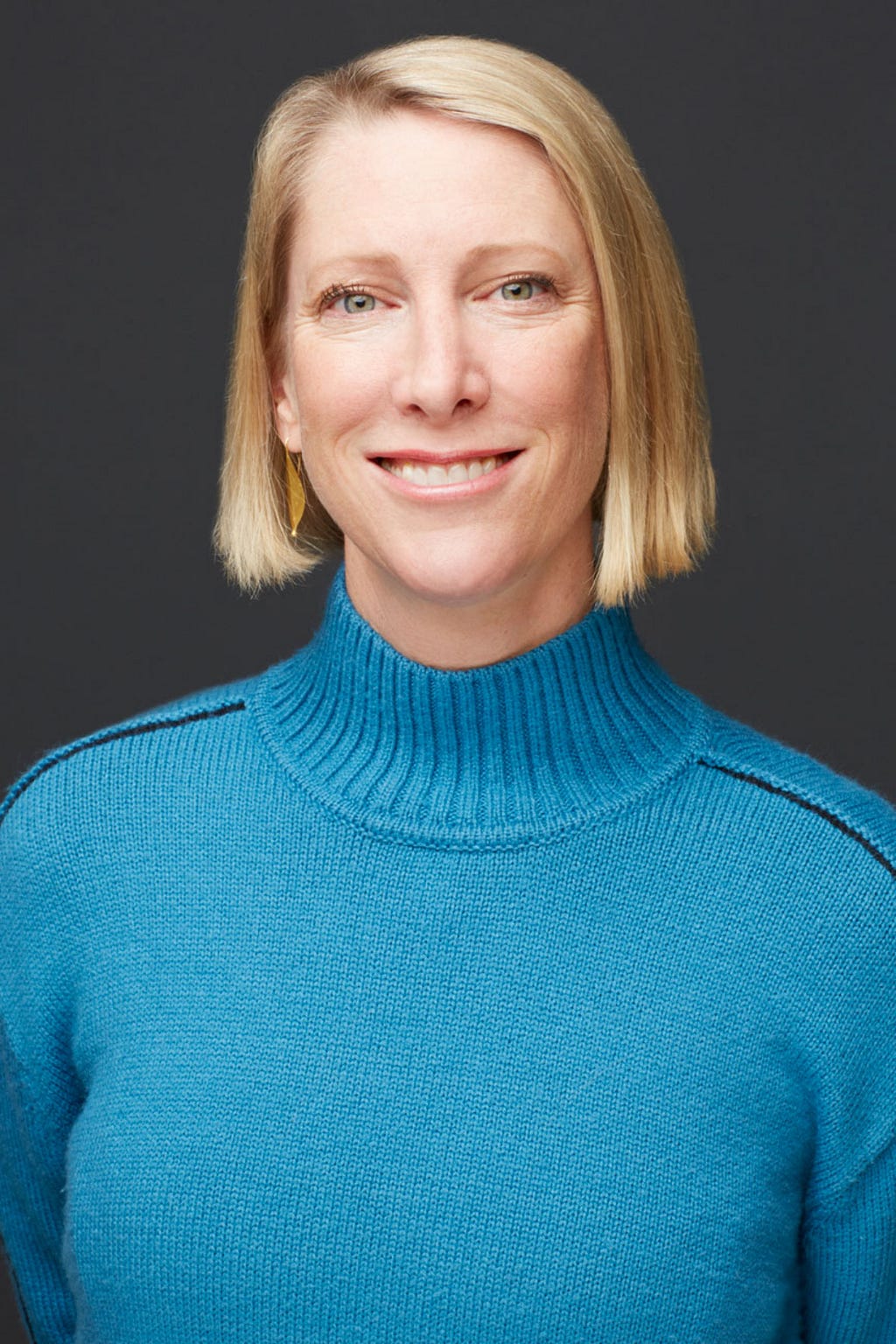Flory Wilson of Reproductive & Maternal Health Compass On 5 Things You Need To Know To Successfully Lead A Nonprofit Organization

Stay focused on the problem, be open to evolving your solution. RMH Compass was not the first idea I pursued; we initially tested a broader-focused approach to addressing workplace gender equity, but as our reality shifted, I realized there was a different approach — an approach no one else was using — to address a root cause of inequity focused on health access.
As part of my series about “individuals and organizations making an important social impact”, I had the pleasure of interviewing Flory Wilson.
Flory has spent her career incentivizing the business community to be great stewards for their stakeholders. As the Founder and CEO of Reproductive & Maternal Health Compass (RMH Compass), a non-profit focused on advancing RMH benefits available to U.S. workers, her goal is for all U.S. businesses to provide comprehensive reproductive and maternal health benefits to their whole workforce. Prior to launching RMH Compass, Flory spent 10 years at B Lab, the organization behind the B Corp movement. She holds a M.A. in international relations from Johns Hopkins SAIS and B.A. from Colgate University and lives in Brooklyn with her husband and two kids.
Thank you so much for doing this with us. Before we begin our readers would like to get to know you a bit more. Can you tell us a bit about your “backstory”?
Sure! My career has focused on the intersection of business, sustainability, policy and impact. I’ve always been fascinated by the policy-making process, the role of business in society and how culture and norms shift over time. I studied history and economics in college and international development in grad school — I love how these topics are interconnected and together weave our current and historic narratives.
Can you tell us the story behind why you decided to start your non-profit?
The decision I made wasn’t necessarily to start a non-profit but more to solve a social problem. The problem I want to solve — or at least chip-away at — is the persistent inequalities women experience in the workplace that have a ripple effect on our economic opportunities and on families across the country. As I was wrestling with the most effective way to create incremental progress on this issue, we started seeing reproductive rights erode in the U.S.
That moment — when the Dobbs Ruling came down, reversing access to a critical reproductive health service in the U.S. — a few things became clear to me. First, I was frustrated with how quiet the business community’s response was. But I also understood that corporations are fearful of wading into politics and avoid it when possible. Second, most Americans get health insurance through employer-sponsored plans and really depend on those health plans and corporate benefits for a full-range of reproductive and maternal health needs. Third, there’s no mechanism to transparently see and compare the quality and comprehensiveness of those benefits. So, I thought, let’s create a mechanism that allows corporations to prove how good their reproductive and maternal health benefits are and, if they’re not that good, let’s equip them with what they need to do better. That mechanism is Reproductive & Maternal Health Compass (RMH Compass), a non-profit organization.
Can you describe how you or your organization aims to make a significant social impact?
At RMH Compass, we are on a mission to ensure that all workers have access to the reproductive and maternal health (RMH) benefits they need. Since most Americans get their health benefits through their jobs, we provide employers with the performance framework, resources, and recognition to provide best-in-class RMH benefits for all workers. As a nonprofit organization, our independent research and rigorous methodology ensure our tools and resources are unbiased, transparent, and credible. Through our work, we are building a business community that understands the value of RMH benefits and is committed to ensuring access for workers at every level.
Without saying any names, can you share a story about an individual who was helped by your idea so far?
I’ve heard many powerful stories of how access to reproductive and maternal health benefits has directly impacted the lives of working Americans. Obviously, these can be deeply personal and private stories, but I’ve been surprised by how forthcoming people have been about sharing their experiences. I’ve had a young professional share that he was looking for a new job after learning his employer had cut its paid family leave program; I’ve had a woman share that she works harder now than ever because she feels such loyalty to her employer after using family formation benefits to start her family; and I’ve talked to many women about the kinds of menopause benefits they’d like to see at work. These benefits cut across gender, age, sexual orientation and job status — they truly impact all American workers.
Are there three things the community/society/politicians can do to help you address the root of the problem you are trying to solve?
Yes, these are solvable problems. It starts with recognizing that people, business and policy are all deeply entwined and when good policy is in place, they can have positive impacts on families, workers and business alike. We tend to think about these issues as a pie, where if someone gets a bigger slice, someone else gets a smaller slice. It’s just not an accurate way of thinking about these issues.
Federal paid leave would benefit all stakeholders — paid leave supports workers when their families grow and helps companies by ensuring those workers return to work when they’re ready mentally and physically to be back. Data shows that paid leave supports companies by lowering turnover and boosting productivity and retention. Without state and federal leave plans in place, the full-cost burden is on employers if they choose to provide paid leave. Not having paid leave programs in place literally makes U.S. companies less competitive relative to companies overseas and punishes workers and families. That’s a lose-lose proposition. It’s totally solvable.
The fact that access to a range of reproductive health services — from abortion to IVF to contraceptives — is under attack in different parts of the country, well, those are anti-business policies because they disincentivize people who have the ability to choose where they live from living in those places. Data consistently shows this is having a material impact on where workers choose to live; most recently, a report highlighted the precipitous decline of OB/GYN residencies in reproductive-restrictive states. These trends have ripple effects; we will see a decline in the talent pool from which companies can recruit and hire in these areas. And workers will be less healthy, lowering productivity and increasing turnover.
How do you define “Leadership”? Can you explain what you mean or give an example?
I dislike the phrase “servant leadership” but I love the values the concept espouses. It’s the idea of leadership in service of others. To me, it’s leading with humility and advancing shared goals by empowering everyone to make their best contributions. I didn’t play team sports much growing up, but as an adult I’ve become an avid sports fan because I love those moments when you see athletes collectively accomplish incredible feats not as individuals but as a team. I think it’s why everyone loves Ted Lasso.

Based on your experience, what are the “5 Things A Person Should Know Before They Decide To Start A Non Profit”.
1. Stay focused on the problem, be open to evolving your solution. RMH Compass was not the first idea I pursued; we initially tested a broader-focused approach to addressing workplace gender equity, but as our reality shifted, I realized there was a different approach — an approach no one else was using — to address a root cause of inequity focused on health access.
2. You must be doggedly determined. Starting anything is hard. Funders say no, prospective partners pass on opportunities, people express skepticism. You can’t let these disappointments shake you from your goals.
3. Feedback matters. Listen to your audience. While maintaining your conviction to your approach, it’s critical to stay open to feedback and really listen to how different audiences respond to your approach. What are the questions and reactions — spoken and unspoken — that you receive? Carving out time to reflect on how people are responding to your idea is critical to processing feedback and making strategic adjustments.
4. Surround yourself with talent. We can’t do hard things alone. Find people who are as passionate as you are about the mission, especially people with different backgrounds and skill-sets, and empower them to run with the work. My colleague Emma has been my thought-partner through many iterations of our work. She is a data scientist, so our backgrounds and approach to problem-solving is different. Together, we’re so much more capable. I think we’ve built a solid relationship of mutual-trust by having open, hard conversations throughout our professional journey.
5. Patience is a virtue. Impatience can also be a virtue. Know when each are necessary. We live in a world where we expect to measure our successes and expect to rack them up like trophies on a trophy shelf. But systemic change happens across decades and generations. I’ve learned how to balance a feeling of constant impatience — I want to see progress, I want my KPIs to show progress, I want to tick off items on my to-do list everyday — with recognizing that this work may, unfortunately, outlive me. I have faith that the seeds — of my work and the work of others with shared goals — the seeds we’re planting will bear fruit in time.
We are very blessed that very prominent leaders read this column. Is there a person in the world who you would like to talk to, to share the idea behind your non profit? He or she might just see this, especially if we tag them. 🙂
I’d love to have a conversation with Melinda French Gates or her colleagues at Pivotal Ventures. We have a similar vision for the role of women in society and I’d welcome a chance to share with her how we’re engaging the business community in addressing the reproductive and maternal health needs of American workers.
Can you share your favorite “Life Lesson” Quote? How is that relevant to you in your life?
My favorite quote is “the arc of the moral universe is long, but it bends toward justice”. Theodore Parker, a reformer and abolitionist, first said this back in the mid-1800s. He died before slavery was abolished so he never saw his efforts bear fruit; but his work had an impact and contributed to the eventual end of slavery in the U.S. When it feels like we’re moving backward and not progressing toward a more just and equitable society, I think about this quote and Theodore Parker. It is hard to balance the urgency with which we want to see change with the reality that it happens over years and decades — this framing allows me to be patiently persistent in my work.
How can our readers follow you online?
You can follow me on LinkedIn. I’d also encourage readers to follow Reproductive & Maternal Health Compass and visit our website to learn more about our work.
This was very meaningful, thank you so much. We wish you only continued success in your mission.
Flory Wilson of Reproductive & Maternal Health Compass On 5 Things You Need To Know To Successfully… was originally published in Authority Magazine on Medium, where people are continuing the conversation by highlighting and responding to this story.
